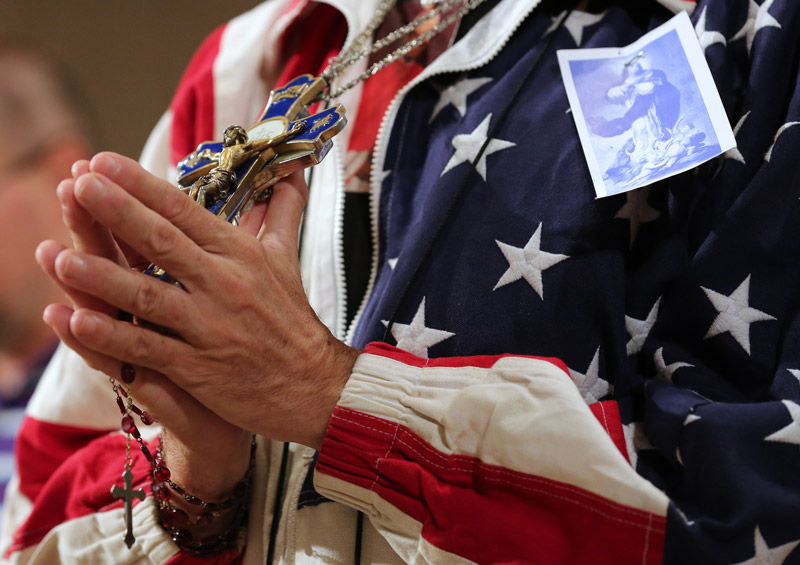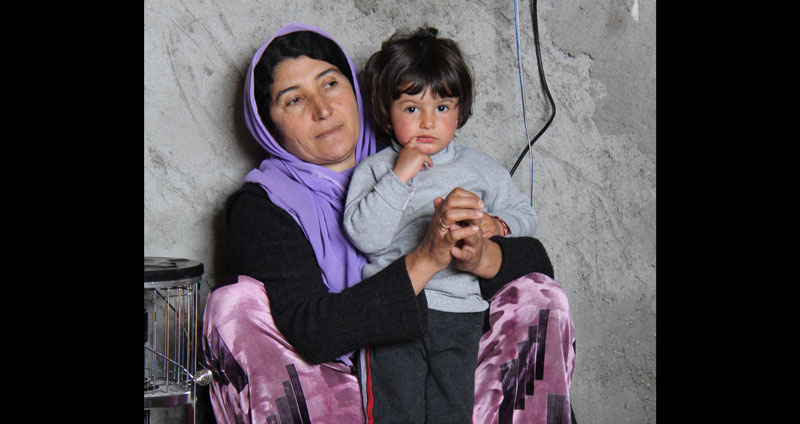
CLEMSON—A group of people learned of the Church’s long-standing efforts to mitigate climate change and offered their own thoughts on the growing threat during a day-long gathering at St. Andrew Church recently.
Jose Aguto, associate director of the Catholic Climate Covenant, led the conversation, carrying forward the opening prayer and blessing from Franciscan Father Dan McLellan, pastor at St. Andrew, who said the great blessing and mystery of creation is at the heart of the need to address climate change.
“Creation comes from the handiwork of God’s goodness; that what God loves, we might love,” Father McLellan said.
“One of the ways we strengthen ourselves is to bring ourselves into the rhythm of that which God provides for us,” Aguto said. “The very air we breathe is of God.”
Aguto said the foundation the Church has built in its care for God’s creation and the growing awareness of rapid environmental change dates back to the early 1970s, when Pope Paul VI published an apostolic letter calling on the Church to confront a variety of social problems, including the environment.
A year later, Pope Paul VI told a United Nations conference of the growing link between humans and the environment, followed by Pope John Paul II and his call for an “ecological conversion”; Pope Benedict XVI, whom the European secular press regularly referred to as the ‘Green Pope’ for his strong pro-environmental positions; and, finally Pope Francis, who has spoken publicly on several occasions on the need to protect God’s creation.
“This is a string of concerns that the three previous popes prior to Pope Francis expressed their feelings about,” Aguto said.
Pope Francis’ 2015 encyclical on the environment “excited the environmental community because it marked the first declaration from the papacy on our care for our common home,” thus establishing that parameter in the Catholic Church, Aguto said.
“What’s heartwarming about this is this is a document for the entire world,” Aguto said.
Noting that care for God’s creation is one of the seven themes in modern Catholic social teaching, Aguto said it is interwoven with other themes, including preferential options for the poor and the dignity of all human rights.
According to its website, the Catholic Climate Covenant was established in 2006 through the U.S. Conference of Catholic Bishops to address ecological awareness and help implement Catholic social teaching on ecology in the U.S. Church by “inspiring and equipping people and institutions to care for creation and care for the poor.”
“When we step forward as Catholics, it is our concern for our fellow human beings and their vulnerability, and an integral part of why we care for God’s creation,” Aguto said.
From a Biblical perspective, Aguto said he gains strength and conviction for what he and the covenant is doing from passages referring to God as the creator of heaven and earth in the Old Testament, the Gospels, and the Nicene Creed.
“It’s the first sentence of our creed, the first sentence in the Bible,” Aguto said. “To me, it can’t get any more essential than that.”
He said since the start of the Industrial Revolution, the balance between the cultural and ecological has been disrupted.
“When we upset that balance we harm ourselves,” he said, adding that with the industrial revolution came the ability to separate ourselves from the natural world. “We have this disconnect now, where our industrial society is harming the ecological foundation on which we depend.”
He said to return to that balance, society must adopt the principles spelled out by Jesus “of a very internal understanding that we do need to sacrifice to the fullest extent, for the sake of one another.”
“This is a moral issue,” he said. “There’s no better time than now to apply the principles Jesus has asked of us in a collective way moving forward.” Aguto said there are trend lines pointing to a cultural shift in consumer behavior, specifically from younger people who refuse to accept certain products and put pressure on corporations who produce them.
“They are attacking that pure corporate ethos of only caring about shareholders and profits,” Aguto said.
Franciscan Father Bob Menard, campus chaplain at St. Andrew, said those changing trend lines are the result of God enabling people to be aware of what they can do to effectively address climate change.
“Part of the challenge we’re dealing with is not just intellectual or religious,” Father Menard said. “We are dealing with addiction, which is what we’re doing as a global family.”
“We need to find ways to strengthen and move forward in our shared ministry,” Aguto said, adding that it will take incremental changes in humankind’s collective lifestyle.
“The question is how do we make our decisions while balancing nature with our lifestyle,” he said.
Mary Steffes, a member of the church’s social justice and outreach committee that sponsored Aguto’s presentation, said changes in behavior begins with faith in God.
“It’s very difficult to make even a tiny sacrifice because of that nagging feeling in the back of your mind that says ‘this isn’t going to make any difference,’” Steffes said. That’s where faith comes in.
“You just have to tell yourself: I don’t know whether it will make a difference or not, but, God help me, I have to try.”



